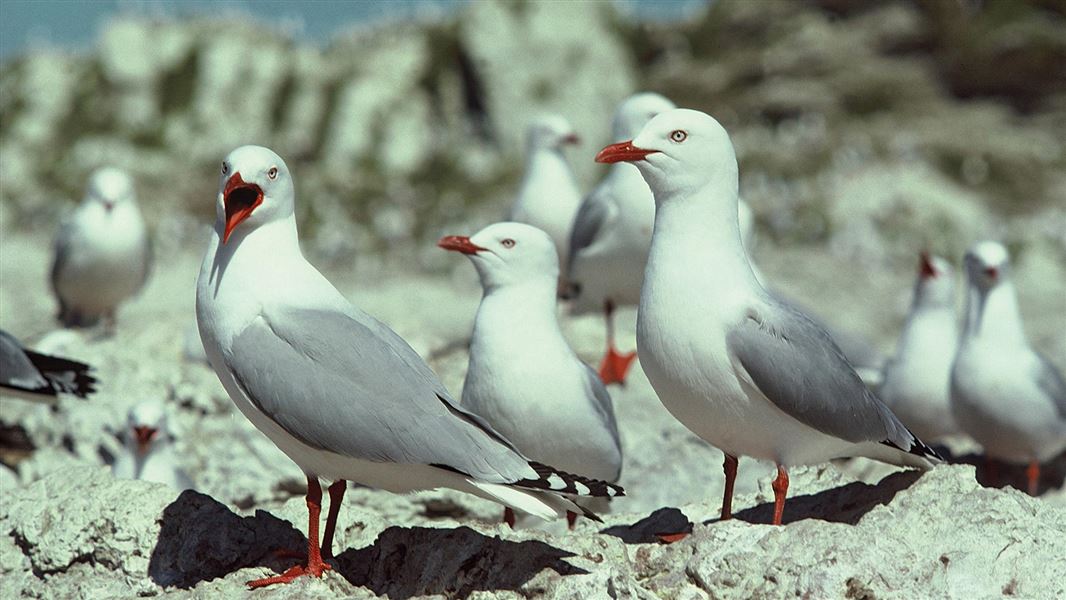Archived content: This media release was accurate on the date of publication.
Date: 25 January 2022
There have been two Facebook posts in the last fortnight regarding sightings of red-billed gulls on the Kapiti Coast with blowdarts lodged in them. One bird was found dead, while the other had the dart impaled in its leg.
Red-billed gulls/tarāpunga are a protected species under the Wildlife Act, and the maximum penalty for the disturbance of protected species is a fine of $100,000 and/or imprisonment for two years.
The Department of Conservation (DOC) was alerted to the issue by the local SPCA and concerned locals, says DOC Supervisor Melody McLaughlin.
“People may not be aware the red-billed gulls are a Nationally Vulnerable species,” says Melody.
“Although they are reasonably common, their numbers are decreasing at an alarming rate.
“This behaviour demonstrates an astonishing lack of respect for the life and welfare of our protected species, and we are taking the matter extremely seriously.
“Our threatened wildlife shouldn’t be used for target practice.”
Blowdarts and blowguns are originally weapons used by ancient cultures in the Americas and Asia, primarily to hunt small creatures for food.
Modern versions of the weapon and the darts are readily available through New Zealand hunting, firearms and outdoor equipment retailers, and promotion of the products states the darts can pierce through soft drink cans.
If you see anyone harming or interfering with wildlife, or who has information on the incidents which have been shared to Facebook, you should contact 0800 DOC HOT (0800 362 468) or wildlifecrime@doc.govt.nz.
Background information
Red-billed gulls nest in dense, noisy colonies around New Zealand’s coast. On wet grass, or at the water's edge, they are often seen 'dancing' on the spot, paddling the ground to draw worms and other invertebrates to the surface to be eaten.
Using the New Zealand Threat Classification System, each native species is assessed every few years against criteria such as how many of it are left, is it increasing or decreasing in number, over what area can it be found, and are any changes due to natural processes or the impacts of people.
Although red-billed gulls are reasonably numerous, their numbers are decreasing at an alarming rate and so they are considered to be 'Nationally Vulnerable'.
Three species of kiwi (Fiordland tokoeka, great spotted and North Island brown) are in the same category, because although their numbers are lower, they are not declining as quickly.
Red-billed gulls are faithful to their partner and nest site; successful pairs tend to stay together and nest in the same place year after year.
Contact
For media enquiries contact:
Email: media@doc.govt.nz
